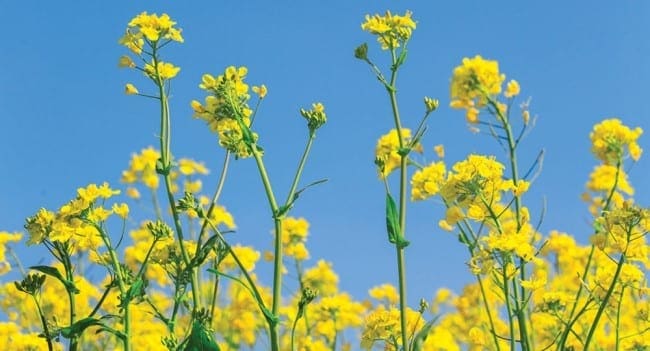Ottawa’s push to protect the battery and EV sectors left Western Canadian canola farmers vulnerable to retaliation by China
 The response to Canada’s decision to impose tariffs on Chinese electric vehicles (EVs) last week was predictable. Ottawa knew that retaliation would follow, and China quickly responded by launching an anti-dumping investigation into Canadian canola exports.
The response to Canada’s decision to impose tariffs on Chinese electric vehicles (EVs) last week was predictable. Ottawa knew that retaliation would follow, and China quickly responded by launching an anti-dumping investigation into Canadian canola exports.
While there is no evidence of actual dumping, the facts are largely irrelevant. China is likely to move forward with sanctions, regardless of the explanations provided by the Canola Council or Canadian diplomats. As in 2019, when Canada faced a similar impasse, we could again see borders close to Canadian agricultural exports.
In March 2019, after the arrest of Meng Wanzhou in the Huawei incident, China abruptly halted Canadian canola shipments, citing pest contamination as the official reason. The Canadian canola industry suffered losses estimated between $1.54 billion and $2.35 billion in sales, with price declines persisting until August 2020 due to the suspended export licenses. Pork exports were also affected, but canola has always been a primary target for China in these diplomatic standoffs.
 Photo by Mak |
| Related Stories |
| Something rotten in Denmark’s livestock tax
|
| The last thing farmers need is more tax
|
| Europe’s agricultural uprising is a warning for Canada
|
Canola holds a special place in Canada’s agricultural identity, and targeting it first is a calculated move by China. The crop was developed in Canada, and its very name – derived from “Canada” and “ola” (referring to oil low in acid) – underscores its deep national significance. As the world’s largest exporter of canola, Canada plays a pivotal role in both global food markets and biofuel production. Conversely, China is the largest oilseed importer, with half of Canada’s canola exports destined for its market. By hitting canola, China sends a clear message: it can disrupt a critical Canadian sector anytime political tensions escalate.
Farmers in Alberta, Saskatchewan, and Manitoba – where most of Canada’s 43,000 canola producers are located – are already feeling the impact. Yesterday, canola prices dropped nearly five percent, and further declines could mirror the prolonged downturn of 2019. The symbolism of canola makes it a prime target. Whenever Canada moves against China’s interests, Canadian agricultural commodities such as canola are the first to be leveraged.
Western Canadian farmers now face significant uncertainty, largely due to Ottawa’s aggressive push to bolster the battery and EV sectors. The federal government has committed nearly $50 billion toward building battery factories, a bold gamble that led to the tariffs on Chinese EVs. The official rationale, it seems, is to protect domestic manufacturers from an influx of cheaper green vehicles from China, even if that means limiting affordable options for Canadian consumers and straining relations with China. This approach prioritizes the development of Canadian-made EVs over the potential benefits of allowing lower-cost imports to help reduce carbon emissions.
This industrial strategy follows a familiar pattern: when a government decides that a product must be produced domestically, at all costs, it often results in less competition, higher prices, and questionable product quality.
The dairy industry offers a prime example. Ottawa has funnelled billions into the sector, supported by highly restrictive trade barriers. While this policy has propped up dairy farmers, it has done so at the expense of other agricultural sectors – wheat, canola, beef, and pork – all of which could arguably benefit from the same level of government support.
In the end, the federal government will likely compensate canola farmers for their losses, as it has done before. Farmers are resilient, but Canada’s diplomatic standing, particularly with China, continues to erode.
For those old enough to remember, Pierre Trudeau once idealized China, yet today, his son Justin faces a more hostile Beijing. History, it seems, has a twisted sense of irony.
Dr. Sylvain Charlebois, a Canadian professor and researcher specializing in food distribution and policy, is a senior director of the Agri-Food Analytics Lab at Dalhousie University and co-host of The Food Professor Podcast. He is frequently cited in the media for his insights on food prices, agricultural trends, and the global food supply chain.
For interview requests, click here.
The opinions expressed by our columnists and contributors are theirs alone and do not inherently or expressly reflect the views of our publication.
© Troy Media
Troy Media is an editorial content provider to media outlets and its own hosted community news outlets across Canada.
